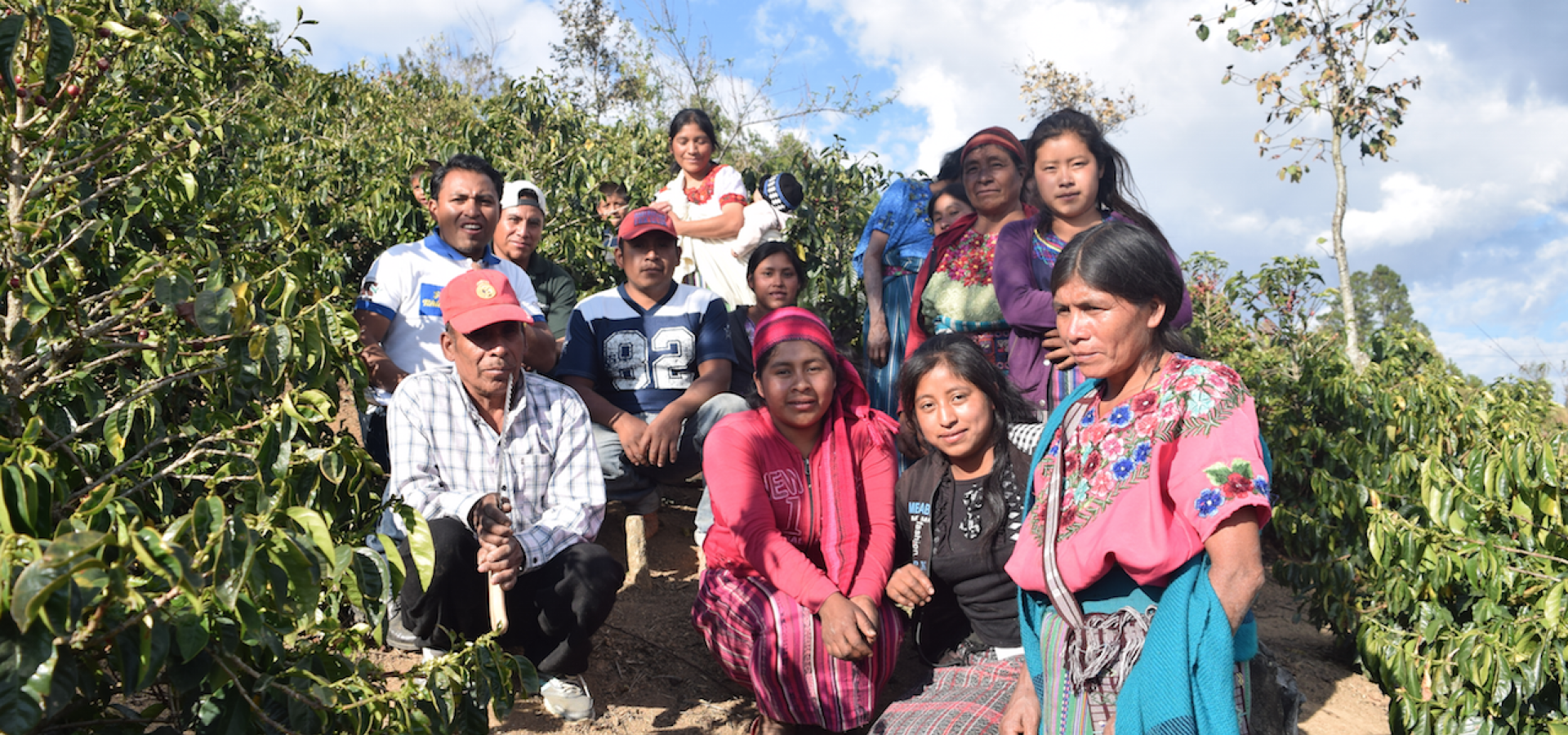‘If we open our eyes, not everyone around us lives the way we do. So it’s all the more important that we enable women to really believe in themselves.’
Michelle Nanne, Project Manager at Coffee Care Guatemala
Challenges facing women
In many rural areas of Guatemala, women still find it difficult to earn their own money. They are often dependent on their husbands' income – and on the short period in winter when families earn their annual income from the coffee harvest.

Our project aims in Guatemala
Supporting women and children
Since 2011, we have been working alongside our local partner Coffee Care to improve living conditions for farmers’ families in Guatemala. We focus in particular on empowering women and protecting children – by improving education, providing more child protection and developing additional sources of income.


Additional income and empowering women
In May 2018, we therefore founded the #WECARE programme in partnership with our local partner Coffee Care: 28 women from three communities in Huehuetenango were given training to become jewellery designers. The women learned to weave bracelets, which were then sold at coffee shops in Guatemala and, in autumn 2020, in Germany as well. The extra source of income not only benefits the women but also their families and the village communities where they live.
Promoting environmentally friendly farming
Our project also involves promoting environmentally friendly coffee-growing methods and helping coffee farmers adapt to the effects of climate change. To achieve this, we work closely with our partner Coffee Care to provide a team of dedicated trainers, who are on hand to offer advice and practical support to the coffee farmers and to give them training in more eco-friendly farming methods.

Project milestones
Project launch
Our project is launched in partnership with Coffee Care in Guatemala.
Nurseries & health clinic opened
Childcare is provided during the harvest and children receive medical care.
Rainforest Alliance certification
The first farmers have adopted more environmentally friendly farming practices and gain certified status according to Rainforest Alliance criteria.
Scholarships
Outstanding students are given a year of financial support.
Empowerment & fair income
Women earn additional income by making and selling bracelets.
Handover of daycare centres
The daycare centres are gradually handed over to local communities for them to manage themselves.
5,560 children
The nurseries provided childcare for more than 5,560 children during the harvests.
Petronila and Leonor, two women farmers from the mountainous region of Huehuetenango, take us to their coffee plantation and tell us about what they have been learning:
Petronila and Leonor, what have you learnt?
Petronila: We learnt how to prune and cut back the coffee plants properly, how to plant trees for shade, how to remove shoots and also how to wash the coffee beans.
Leonor: I learnt how to dry my coffee and how to prevent leaf rust, as well as the best way to fertilise my coffee.


What did you like about the training?
Petronila: The coffee tasting.
Leonor: Getting leaf rust under control. There didn’t use to be any leaves on my coffee plants.
And what has changed for you?
Petronila: I prune the coffee trees differently now and my plants have developed shoots as a result, so we produce more. Because our coffee is better quality now, we can sell it for a higher price. That has helped my family.
Leonor: We know exactly how to dry coffee now. Before, there was far too much moisture in it. The traders give us more money for our coffee now, as it is a better product.


